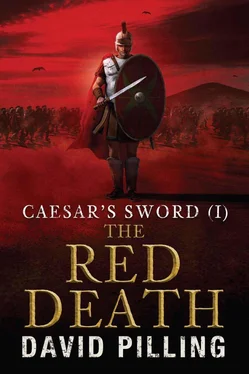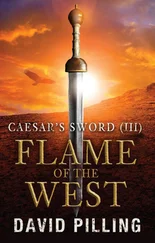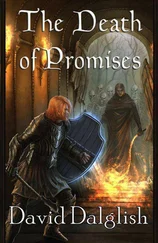David Pilling - The Red Death
Здесь есть возможность читать онлайн «David Pilling - The Red Death» весь текст электронной книги совершенно бесплатно (целиком полную версию без сокращений). В некоторых случаях можно слушать аудио, скачать через торрент в формате fb2 и присутствует краткое содержание. Год выпуска: 2013, Жанр: Исторические приключения, на английском языке. Описание произведения, (предисловие) а так же отзывы посетителей доступны на портале библиотеки ЛибКат.
- Название:The Red Death
- Автор:
- Жанр:
- Год:2013
- ISBN:нет данных
- Рейтинг книги:4 / 5. Голосов: 1
-
Избранное:Добавить в избранное
- Отзывы:
-
Ваша оценка:
- 80
- 1
- 2
- 3
- 4
- 5
The Red Death: краткое содержание, описание и аннотация
Предлагаем к чтению аннотацию, описание, краткое содержание или предисловие (зависит от того, что написал сам автор книги «The Red Death»). Если вы не нашли необходимую информацию о книге — напишите в комментариях, мы постараемся отыскать её.
The Red Death — читать онлайн бесплатно полную книгу (весь текст) целиком
Ниже представлен текст книги, разбитый по страницам. Система сохранения места последней прочитанной страницы, позволяет с удобством читать онлайн бесплатно книгу «The Red Death», без необходимости каждый раз заново искать на чём Вы остановились. Поставьте закладку, и сможете в любой момент перейти на страницу, на которой закончили чтение.
Интервал:
Закладка:
“Keep your back straight,” Leo called out. I did my best. If I had showed any fear, or laid flat across the horse’s back, I would have failed the trial.
Fortunately, I turned out to possess a natural affinity for horses and riding: after all, my ancestors were horse-soldiers. After I had successfully bounced up and down on the Arab for a few turns, Leo declared he would try me on a larger and more intimidating beast, a glossy black mare that was still being broken.
It was impossible to conceal my terror of the mare. A team of sweating grooms dragged her onto the track via ropes secured about her neck. They were careful to keep clear of her flailing hoofs as she reared and snorted, her mad eyes rolling in anger.
“Let’s see you stay aboard her, boy,” Leo said cheerfully, “her name is Tisiphone, after one of the Furies. The avenger of blood, I believe.”
He laughed, for I was trembling visibly. Felix, whose own trial was scheduled after mine, caught my eye and shook his head.
“I have to,” I whispered, and took a reluctant step towards the terrible horse. Her forelegs were skidding across the track as she plunged and fought her handlers. One of her plate-sized hoofs kicked up a cloud of dust that hit me in the face, blinding me.
Leo roared with laughter as I fell onto my backside and rubbed my eyes. He was so engrossed he didn’t notice as another man approached us.
“What in hell is going on?” demanded the newcomer in a harsh, gravelly voice that was used to being obeyed.
I wiped the last of the dust from my eyes and stared up at him. He was an ageing bull of a man, twice the size of Leo, and everything about him radiated crude strength and authority. I recall a large round head with hardly any neck to speak of, massive shoulders corded with thick slabs of muscle, and long arms, somewhat like an ape’s, ending in big, powerful fists.
The man’s voice was cracked and wheezing. He breathed heavily even when not speaking, as though something ailed his lungs. I judged him to be in his fifties. His hair was nothing more than a thin smear of grey on his scalp, his nose a squashed and much-broken horror, and his teeth reminded me of a broken fence. For all that, there was no malice in his expression, and he looked at me and Felix with genuine concern.
Leo started when he noticed the giant at his elbow. “Just putting two new volunteers through their paces, Aquila,” he said with bad grace, “they came to the gate this morning.”
Aquila rubbed his unshaven jaw and cast a sceptical eye at Tisiphone. “That monster will kill them,” he rumbled. “She broke Gallus’s leg a couple of days ago. Don’t be so bloody stupid, Leo. We are not in the business of crippling children. Have them trained on milder beasts.”
Leo’s face darkened with anger, but he submitted and ordered Tisiphone to be returned to her stable. Aquila gestured at us boys to stand in front of him.
“I am Aquila, chief overseer of the Blues,” he said, “it is my job to watch over our people and make sure they are being trained and looked after properly. Leo works for me. So will you, if you pass muster. Unless you would prefer to join our rivals?”
He referred to the Greens. Neither I nor Felix held any preference. We had always looked to ourselves rather than supported either of the factions.
“We are happy to join the Blues, Kurios ,” I replied. He studied us gravely for a moment, and then gave a little nod.
“Be wary of Leo,” he said as he turned away, “he’s a good trainer, and you can learn a lot from him, but inclined to be over-zealous. If he gives you any trouble, come to me.”
We learned a great deal in the following days, not just about Leo, but the Hippodrome and the people who lived and worked in it. Below the arena was a large subterranean warren of storehouses and chambers. Here the Greens and the Blues stored costumes, props and equipment. We were surprised to learn that several branches of imperial government also had their departments here. Sombre clerks and officials in plain robes cheerfully rubbed shoulders with athletes, charioteers and the more flamboyant members of the circus, actors and dancers and gymnasts and the like.
Leo delegated one of the latter to show us around the Hippodrome, saying he had no time or patience for the task. I think we had angered him by passing our trials with ease – Felix gave each of the older boys he was placed in the boxing-square with a bloody nose – and his delicate pride was stung by Aquila’s reprimand. He gave the task to one of the actresses, a young girl no more than thirteen or fourteen named Theodora.
Placing Theodora in charge of a couple of innocents was, I think, Leo’s notion of a joke. I knew nothing of her, but was soon to learn of her reputation. Even then, it was a foul one.
It is only with difficulty that I set aside my hateful memories of Theodora. To glimpse her again as I first saw her, a slender, fresh-faced girl with ivory skin and a delightfully winning manner, is a severe effort of will and memory.
Theodora’s manner, which as a child I took to be natural and unforced, was mere artfulness, concealing the depths of a personality forged in Hell. Her waifish beauty and creamy skin were genuine enough back then, though in later years she fought a losing battle to preserve them with cosmetics.
Such was the true nature of the lovely young girl who escorted us, laughing and chattering, through the labyrinth beneath the Hippodrome. She confessed to adore children, and was especially amused by me.
“I have met few of your people before,” she said, gently caressing my hair in a way that reminded me, with a stab of pain, of my mother. “Though I have heard stories about Albion, that cold northern isle, and the courage of its inhabitants.”
Her voice was soft and teasing, and had a practised sensual quality that made me redden, even though I was still at the age where females were little more than a nuisance.
“Child of Albion,” she said with the gentle smile that drove legions of young men mad with desire, “we must give you another name. A proper, civilised name. Coel is nothing but a barbarous noise.”
I bridled at this, and for the first time in years was reminded of the pride of my ancestry. “I am named after my forefather, Coel Hen,” I replied. “He was a great warrior, and a great king.”
Her smile didn’t waver. “A king of mud huts and wet hillsides, no doubt, who hopped about in a suit of woad. However, I see you take some pride in your family. That is to be applauded.”
She paused to let a scribe with ink spots on his face shuffle past, almost bent double under a great heap of papyri.
“The Emperor Claudius named his son Britannicus, in memory of the Roman conquest of your country,” she said thoughtfully, tapping her delicate cheek, “it would not to do name you after an Emperor’s son, unless the inferiority is acknowledged. Let us call you, then, Britannicus Minor.”
I didn’t care for that, but it made Felix smile, and Theodora was amused enough by her own witticism to re-tell it until the name stuck. For the rest of my time at the Hippodrome I was known as Britannicus Minor, which served as a constant irritation and a reminder of Theodora’s persuasive arts. Further evidence of her unusual talents was not long in coming.
After Felix and I were formally bestowed with the blue garlands that marked us out as members of the Blues, we were considered proper members of the company and permitted to reside in the athlete’s quarters at the Hippodrome. This achieved our main object, of gaining food and shelter and employment. We had to work hard for the privilege of membership, and Leo and his fellow trainers wasted little kindness on their younger charges.
Читать дальшеИнтервал:
Закладка:
Похожие книги на «The Red Death»
Представляем Вашему вниманию похожие книги на «The Red Death» списком для выбора. Мы отобрали схожую по названию и смыслу литературу в надежде предоставить читателям больше вариантов отыскать новые, интересные, ещё непрочитанные произведения.
Обсуждение, отзывы о книге «The Red Death» и просто собственные мнения читателей. Оставьте ваши комментарии, напишите, что Вы думаете о произведении, его смысле или главных героях. Укажите что конкретно понравилось, а что нет, и почему Вы так считаете.












